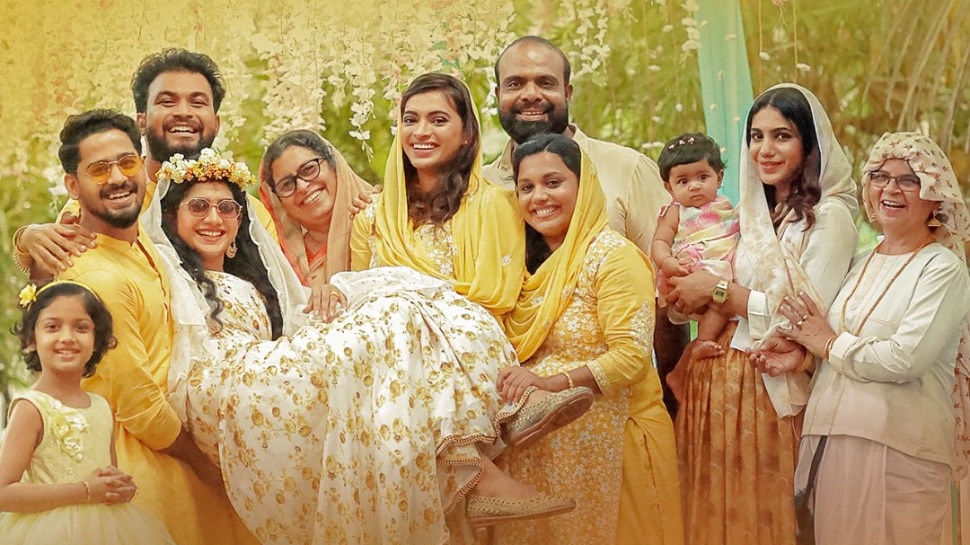Sulaikha Manzil, a film by Ashraf Hamza, explores the pre-marital stress that many couples endure and manages to capture these moments in a lighthearted way. The movie, however, falls short of making any meaningful arguments because it frequently comes off as cliched and excessively joyous in some places.

Synopsis
With little prior acquaintance, Haala (Anarkali Marikar) and Ameen (Lukman) find themselves caught up in an arranged marriage. Haala, who is still dealing with the effects of a previous breakup, is ready for the marriage thanks to the strained relationship she has with her older brother Sameer. The wedding is in barely two weeks, but Ameen feels they should spend more time together before being married. Ameen tries to connect with Haala, but she shows no interest, which causes problems that almost cause the marriage to fail. The tension-filled feelings they experienced the night before their wedding and the planning for the big day are the plotlines for the film.
Review

While the movie features many characters, as one would expect from a huge wedding-themed plot, it lacks excitement, especially in the plodding first half. The jokes occasionally fall flat, presumably as a result of linguistic problems, and the comedy sometimes lacks impact. Another flaw is the writing’s superficial treatment of various circumstances, which leaves out important opportunities to explore the characters’ feelings.
In the majority of the movie, Ashraf’s honest endeavour to convey a straightforward and realistic tale of two people in an arranged marriage is evident. In it, two people navigate their disagreements and uncertainties while remaining within the parameters of their marriage. The portrayal of Anarkali Marikar’s Haala and Lukman Avaran’s Ameen’s attempts to express their wants and expectations, as well as the occasional blunders that every young couple encounter is genuine and relevant.

Through the performers’ riveting performances and the director’s evocative environment produced through music and dance, the movie does find redemption. A superb portrayal is presented by Lukman, who successfully conveys the full gamut of Ameen’s feelings, including his joy, anxieties, and fury. Anarkali excels in her role as Haala, expertly expressing her plight through subtle body language, sentence delivery, and mannerisms while avoiding the melodrama trap.
The script softly romanticises and glosses over a major issue—depriving people of their personal autonomy—despite the movie’s positive qualities. It is impossible to discount Haala’s awful circumstances, which included being forced by her family into an arranged marriage and forced to leave her genuine love. Accepting this fate requires her to ignore some troubling characteristics of her boyfriend and attribute them to his purported care for others’ pleasure. Regardless matter how softly it is said, promoting the notion that women should sacrifice their personal desires for the “greater good” of the family is a dated message that has no place in this day and age. Instead of promoting the idea that personal freedom must be sacrificed for societal norms, it is crucial to promote narratives that enable people to make decisions based on their own satisfaction and agency.
Verdict
Despite the great performances and the occasional feel-good scenes, there aren’t many things in the movie that actually excite the audience. Despite dealing with a serious subject, the film fails to make an impression on the audience. It is unable to fully explore the breadth and complexity of the subject matter it discusses, failing to ring true or remain in mind. The performances and sporadic upbeat passages might make for passing amusement, but the movie falls short of forging a deep and lasting bond with the viewer.




